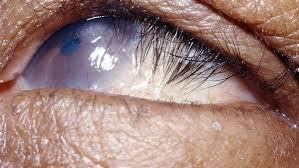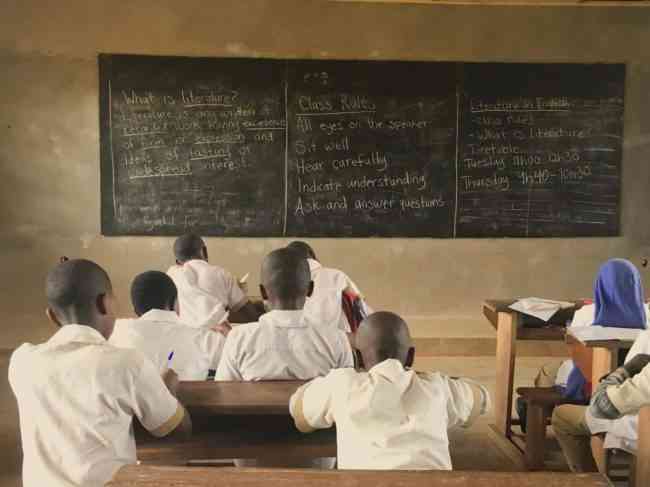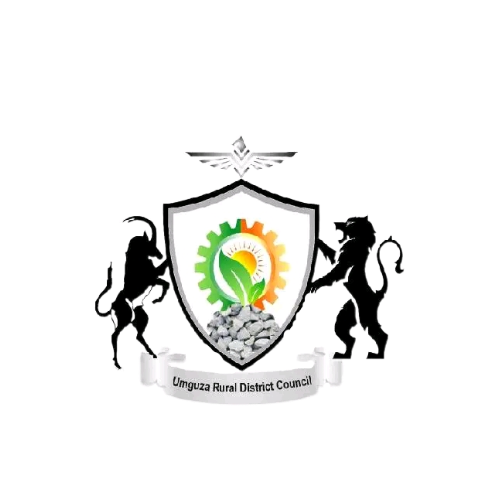
Villagers in Chiwundura district in Midlands province have embraced a trachoma prevention programme after a massive awareness campaign by community health workers (CHWs) and local traditional leaders.
The villagers were initially suspicious of the government-driven programme following rumours and misinformation that trachoma prevention tablets caused serious side-effects.
Trachoma is a preventable disease that affects the eyes, causes loss of vision and blindness and is most common in poor rural communities.
Rumours were awash in the Midlands that the tablets caused blindness or illness that would lead to death and this resulted in the local community resisting the programme.
It was against that background that community health monitors (CHMs) and village health workers (VHWs) were roped in to disseminate correct information using focus group discussions, awareness campaigns, one-on-one sessions and community meetings to dispel the rumours.
Health workers confirmed initial resistance to the tablets during a Community Working Group on Health (CWGH) district feedback meeting held in Chiwundura district recently.
They, however, noted an increase in uptake of health services, including trachoma tablets, after massive campaigns by CHMs and community leaders that worked tirelessly to influence the villagers to accept the tablets.
“We have seen an increase in the uptake of the trachoma prevention tablets as compared to when we started the programme,” said Sister Palma Phiri of Chiwundura Clinic.
- Social commentary: Zim women face risks in giving life
- Bosso search for elusive away win
- Social commentary: Zim women face risks in giving life
- Govt implored to increase health funding
Keep Reading
“There is also a huge difference in comparison with the low uptake of Covid-19 prevention vaccines of the past years.”
She applauded CHWs for complementing the ministry of Health and Child Care (MoHCC)’s efforts in providing health care services to the communities. The meeting was attended by representatives of other civil society organisations, MoHCC, the police, community and traditional leaders.
It was noted at the meeting that some community members, especially members of some apostolic sects, were still resistant despite on-going intensive information dissemination activities. The community health workers also raise awareness on Covid-19, cholera, dysentery and other health services aiding in the general health service delivery.
CWGH community health monitor for Ward 11 in Chiwundura, Nanzile Mashiri said there was need to continue with health education, especially among some members of the apostolic churches who still resist modern medication treatment.
“Generally, communities have shown an increase in knowledge levels on health issues as evidenced by improved uptake of health services,” Mashiri said.
“But we still need to do a lot more work among members of some religious groups.”
It was important, she noted, to convince the leaders of the churches first before trying to address the followers.
“The followers would rather listen to the leaders than anyone else.
“You can send a person with a doctorate but they won’t move an inch,” he said.
A local pastor, 74-year-old Richard Matimba, who claimed to have fallen ill after taking the trachoma tablets, blamed the initial low uptake of the pills to lack of correct information.
“What I realised is that the medication came before awareness,” Matimba said.
“There should have been a campaign well before that so that people are informed so that they can make informed decisions.”
The trachoma awareness programme in Chiwundura is part of nationwide community-centred awareness vaccination drive by CWGH in partnership with the government with financial support from USAid.
Under the drive, CHMs are trained to collect data (rumours and misconceptions) in their communities using the Kobo collect tool on android phones.
The data is then sent to a central hub where it is analysed and shared with other humanitarian actors.
The rumours also inform community initiatives planned by the CHMs in partnership with other CHWs to increase knowledge levels and change attitudes and practices related to Covid-19 and other health issues.
Health experts attributed the success of community programmes to the fact that CWHs have “inside” knowledge of the communities where they work in or stay.
“These community cadres share the life experiences of the people they serve and therefore can form meaningful and trusting relationships with their clients,” said CWGH executive director, Itai Rusike.
“Generally, the rapport they have with members of their communities enable them to collect accurate information that can inform public health policies and programming.”
A recent survey by Sightsaver, a non-governmental organisation, showed that trachoma was prevalent in some rural parts of Zimbabwe, with Matabeleland North province being the worst affected.
The disease has also been reported in areas such as Gokwe and Chiwundura in Midlands province.
Trachoma is a preventable that affect the eyes and cause loss of vision and blindness.
It is the leading cause of blindness in Africa. It is estimated that about seven million people in Zimbabwe are at risk of contracting the disease.









